Variation 1
Variation 2
About Morari
Morari (from Latin morari, meaning to linger) is a
six-piece urban furniture series developed in
collaboration between Jesse Altmann, Valentina Lenk, and
Klara Schneider, questioning the comfort at bus stops
using Potsdam as an example.
The series utilizes standardized railings as a basis
for attaching various seating modules, backrests, and
tables. Passengers can thus wait at the stops flexibly
in groups or alone, sitting or standing, with or without
luggage. The amorphous design language, intended for
1-to-1 3D printing using a robotic arm, gives the series
its individual character and lightens the traditional
aesthetics of bus stops.
The decision to use recycled polypropylene as the
material was made due to its durability, stability, and
color fastness. The plastic allows for recycling and the
individual color design of each piece of furniture.
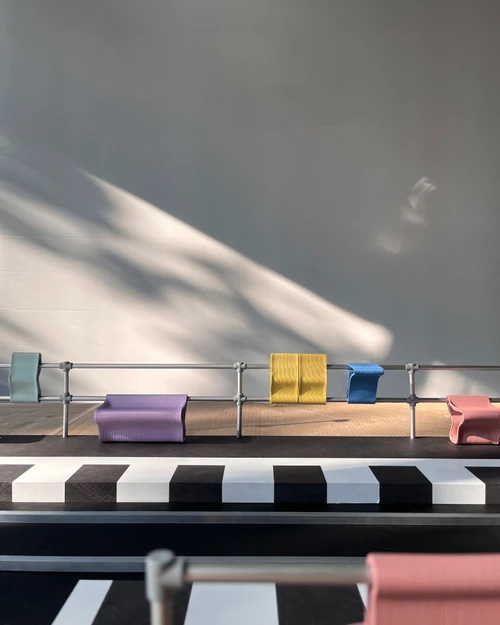
Material & Production
Despite its negative connotations, plastic, specifically
PP (polypropylene), was chosen for its stability,
durability, and colorfastness. Recycled plastics with
color compounds are used to ensure high adaptability and
enable the material to have a longer lifecycle and be
recycled again.
The latest technologies are employed in manufacturing
through on-demand fabrication using a Kuka robot. The
eight-axis robotic arm with a 3D printing attachment
allows for high flexibility in shape and size, saving
material compared to conventional manufacturing methods,
and minimizing waste through material reuse. Our
Production is carried out in cooperation with
“Design+Robotics” in Werder, Brandenburg, Germany.
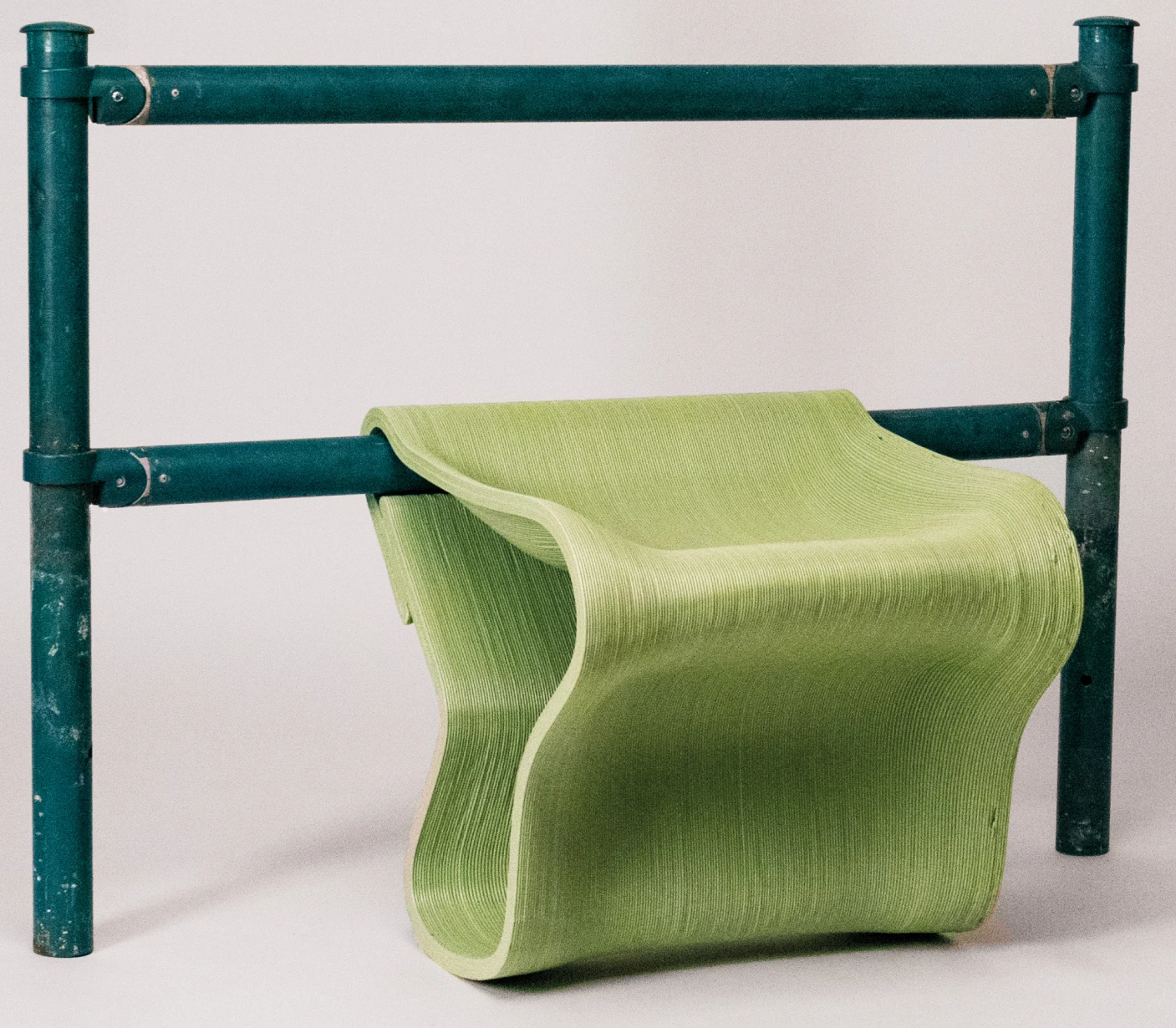
Furniture
Table
The “Morari Table” blends seamlessly into the surroundings of the bus stop and offers versatile functions. Travellers can easily place heavy luggage, food or bags on it and use it as a base at the same time.
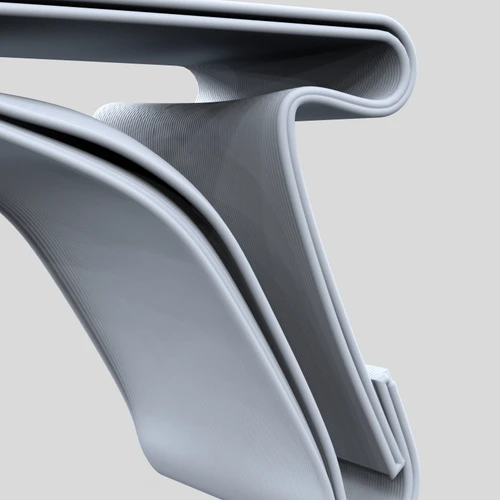
Stool
The “Morari Stool” stands out from conventional bus stop furniture thanks to its unique, organic shape, which was specially developed to make bus stops not only more comfortable but also more aesthetically pleasing. With its distinctive profile, it forms the centrepiece of our model series.
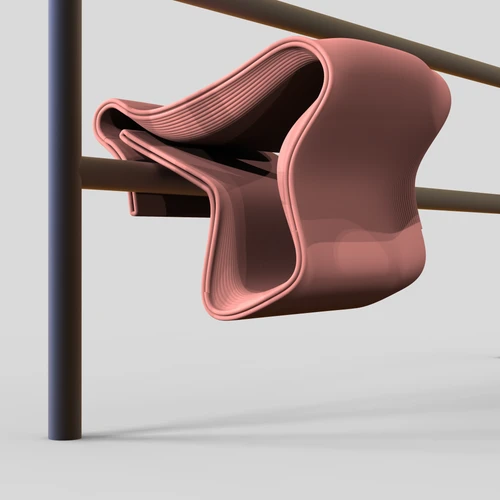
Stool XT
The “Morari Stool XT” is the extruded version of the STOOL'S. A bench that not only offers a comfortable seat for two, but is also a way to relax and socialise while waiting for the train or bus.
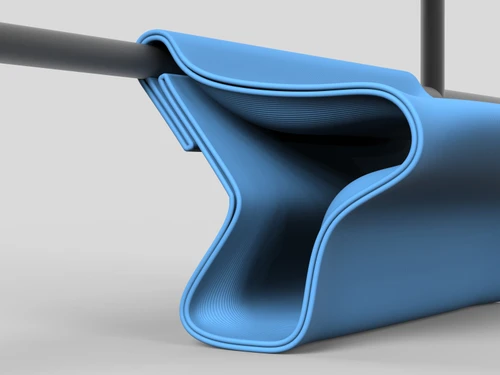
Lean
“Lean” was developed to make waiting easier for travellers by allowing them to lean comfortably against the railing without having to take a seat. Lean is there for you when you need a short break. It offers a comfortable alternative to the simple busstop railing.
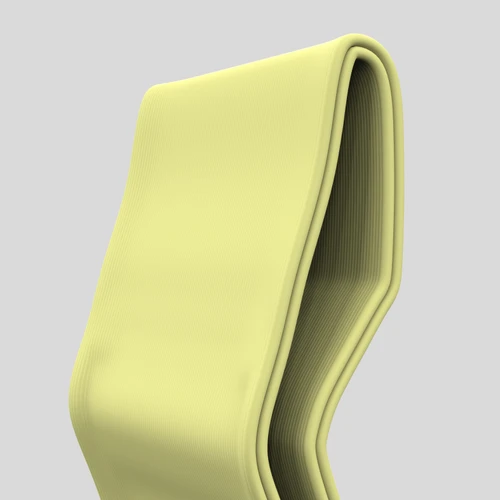
Chair
The “Morari Chair” not only provides a comfortable seating option but also, with its backrest, offers a great opportunity to lean back and relax, providing high comfort. Travelers can comfortably lean back and spend their waiting time in a relaxed position.
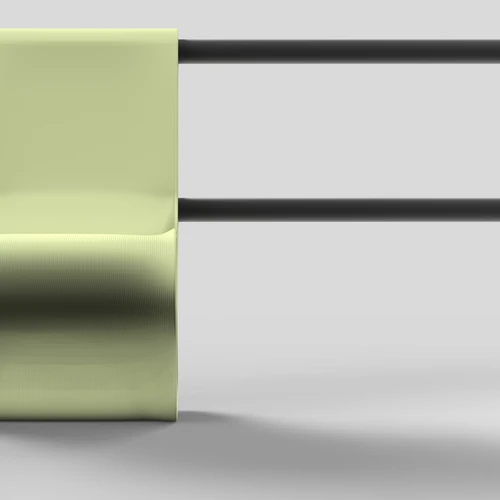
Chair XT
The central feature of the “Morari Chair XT” with its extended seating surface is its broad width, which can accommodate several people at the same time. People waiting can get together in groups, have conversations and spend the waiting time in company, which creates an inviting atmosphere and promotes social interaction.
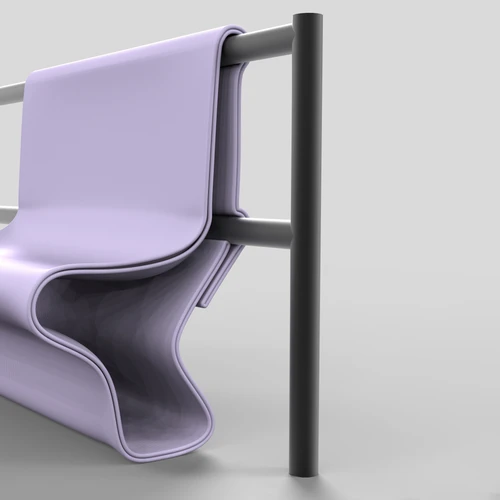
About Us
HEY!
Morari is an attempt to rethink the bus stop habitat.
Far from norms and geometry, the objects wrap tightly
around the existing railings.
Who create Morari. Jesse Altmann, Valentina Lenk and
Klara Schneider, three young Potsdam-based Designers who
have set themselves the goal of questioning the
conventional bus stop exterior.
The unconventional approach to the design is due to its
manufacturing process, because not only the organic
design, but also the 3D printing manufacturing process
speak for themselves and break with conventional urban
furniture.
Morari is the result of a collaboration between three
different design languages, which are combined in the
product language. It is rebelliously playful and precise
at the same time.
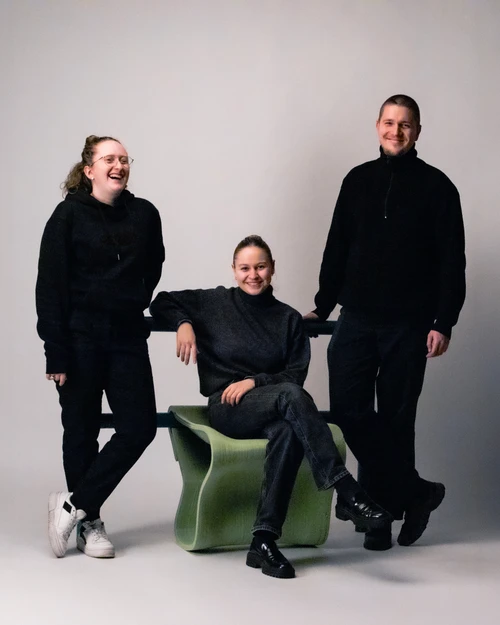
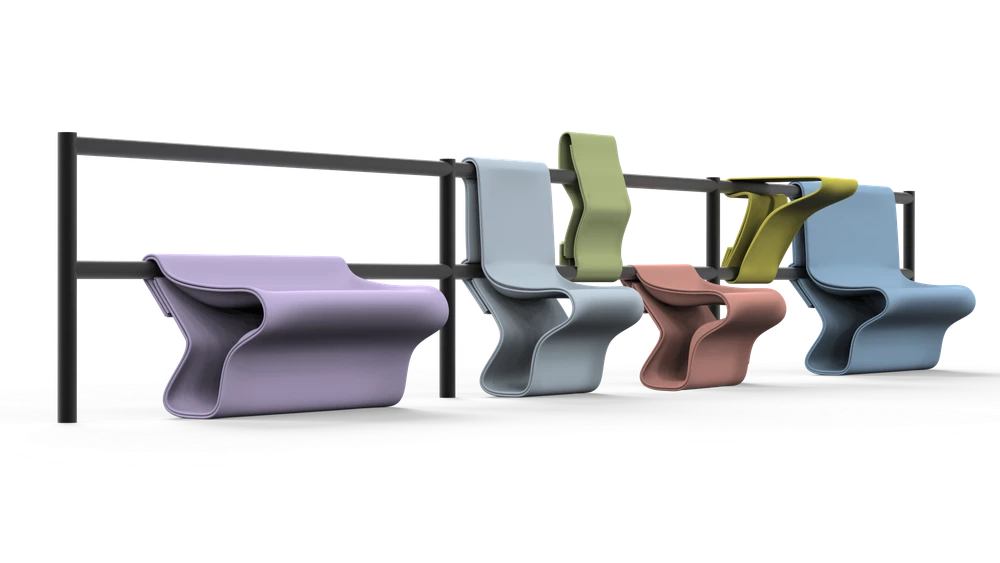
All Rights reserved